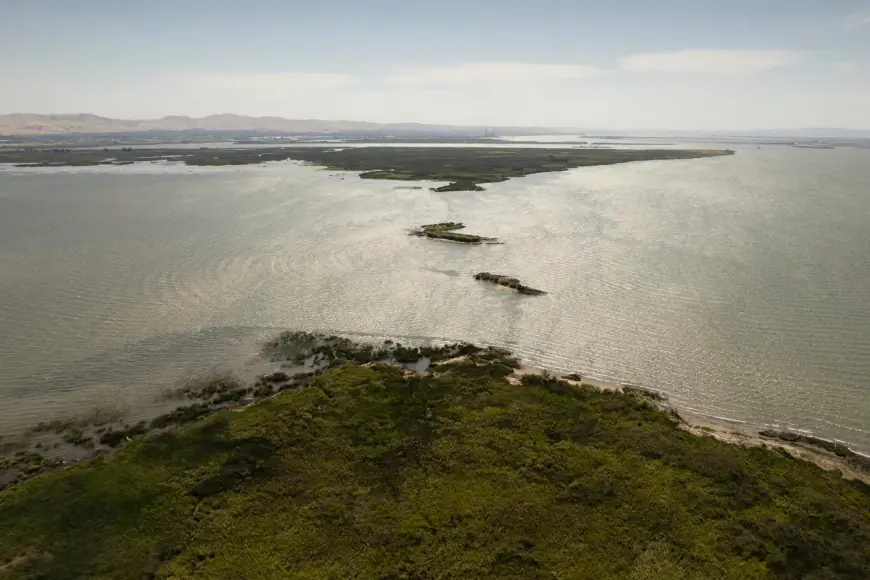Giant Southern California Water District OKs Spending $141 Million for Delta Tunnel Project
California’s largest water contractor agreed to more spending on the latest version of the long-proposed Delta Conveyance Project.



California’s largest water contractor agreed Tuesday to spend another $141 million on the latest version of a long-proposed tunnel that would bring water under the Sacramento-San Joaquin Delta to farms and cities in the southern part of the state.
But the directors of the Metropolitan Water District of Southern California, which along with local agencies provides water to 19 million people, had lots of questions and caveats along with their approval to fund the planning and preconstruction phases of the Delta Conveyance Project.
The project is expected to cost $20 billion at full build-out, according to estimates released by the Department of Water Resources earlier this year.
A recurring question the MWD board had Tuesday was whether the Kern County Water Agency, the state’s second largest water contractor, was on board to pay its share of costs — $3.3 million — for this phase of the project.
The agency and its member water districts have yet to hold a vote on how much they will pay toward DWR’s current request of $300 million for this phase of the project, according to an email from the agency. Several local districts were discussing the project this week, according to their meeting agendas.
State officials say the Delta project is critical to help shore up water supplies in the nation’s most populous state due to aging infrastructure and climate change-induced shifts in precipitation.
“After careful consideration, our board took this step because it allows us to gather critical information about the project’s benefits and costs that will allow us to evaluate whether we will participate in the full construction of the project,” Metropolitan board Chair Adán Ortega Jr. said in a statement.
Consideration by the Kern County Water Agency for spending an additional $3.3 million weighs heavily on agricultural users who can’t spread that cost among millions of ratepayers or finance it using guaranteed income from future rates, acknowledged Wade Crowfoot, Secretary of California’s Natural Resources Department who was at the meeting in person to answer questions.
Still, Crowfoot assured the board that Kern would pony up its share.
“Karla Nemeth (director of DWR) has been working with the irrigation districts and Kern County Water Agency to ensure they will participate,” he said.
DWR representatives made the rounds in Kern County this summer, attending numerous water district meetings in person to go over the project and its funding.
In recent years, several local districts have opted out of continuing to fund the project.
Collectively, Kern districts have paid about $72.4 million since 2007 on various versions of a tunnel project through the delta, including a twin-tunnel version under then Gov. Jerry Brown. When Gov. Gavin Newsom took office in 2019, he trimmed that plan to a single tunnel, but costs have continued to escalate.
Even for Kern districts that remain committed to funding the project, there are a lot of questions about the state’s cost assumptions and how the project will be operated.
California hasn’t been able to say how much more reliable the tunnel would make water deliveries, which makes it nearly impossible for districts to conduct a cost-benefit analysis, ag districts have repeatedly noted.
Crowfoot indicated Tuesday the proposed tunnel would be used mostly to capture excess flows during big water years, such as 2023. It also would, theoretically, ensure a continued water supply if an earthquake destroyed Delta levees and flooded the region with saltwater, Crowfoot said.
The state has the Delta Conveyance Project benefits pegged at a 2.20 cost ratio, meaning for every $1 spent, there is $2.20 worth of benefits. But Rosedale Rio-Bravo Water Storage District Resource Manager Trent Tailor said this summer that estimate is skewed toward urban benefit.
Still Rosedale Rio-Bravo is one of the Kern districts that has committed to continue funding the Delta Conveyance.
“The heavy hitters in this thing, they have no problem cutting you out if you are not a participant,” Rosedale Rio-Bravo’s Vice President Jason Selvidge said this summer after the DWR presentation.
Critics say the project’s $20 billion price tag is too high and there are other ways to strengthen the state’s water system with less impact to the Sacramento-San Joaquin River Delta’s fragile ecosystem.
Barbara Barrigan-Parrilla, executive director of Restore the Delta, said the tunnel aims to transport too much water to farm operations that should be scaling back on water use as the state faces a potentially drier future. California grows much of the country’s fresh produce.
“There are certain elements that just want to build things for the sake of building things rather than doing the analysis of building the right things,” she said.
The tunnel has been proposed — and disputed — for many years, earning widespread opposition from Central Valley communities that say it would harm their economies and the Delta. Last year, the state completed a key environmental review for the project, but it still must pass additional review and obtain various state and federal permits.
Lois Henry is CEO and editor of SJV Water, an independent, nonprofit news site covering water in the San Joaquin Valley. Email SJV at sjvwater@sjvwater.org. The Associated Press contributed to this report.
What's Your Reaction?









































































































